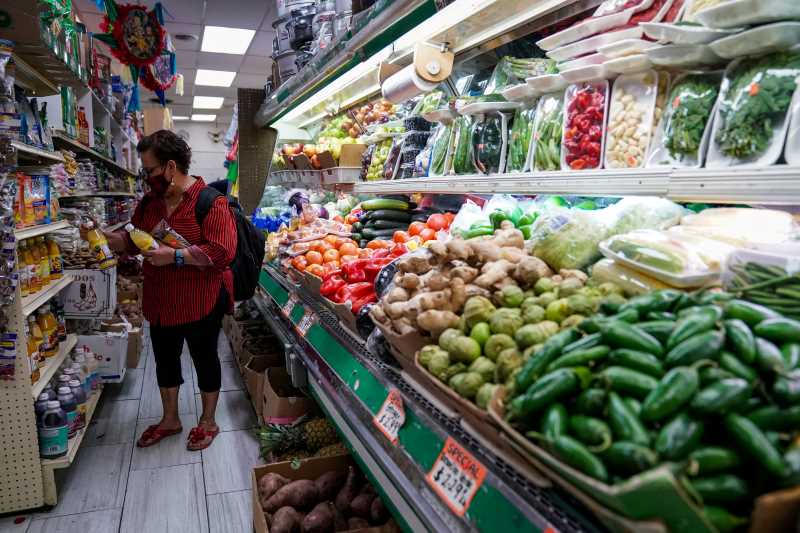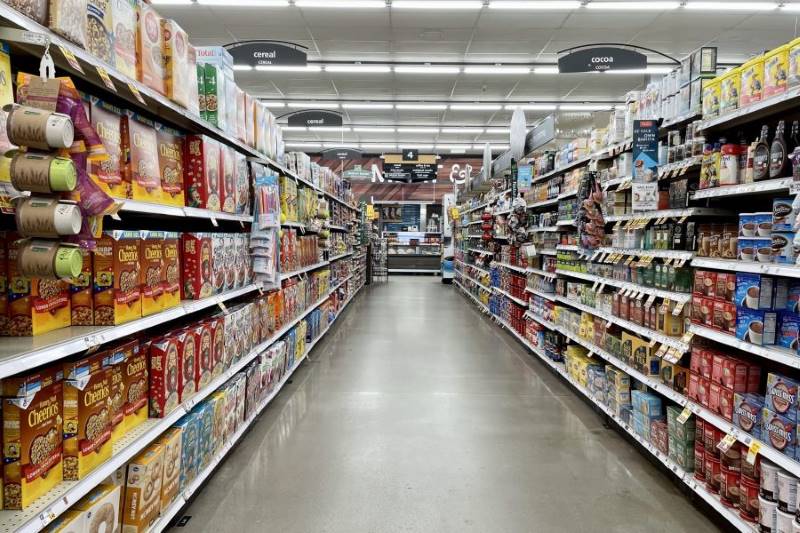In a bid to address rising food costs, the Kamala Harris campaign has unveiled a proposal for the first-ever federal ban on price exploitation in the food and grocery sectors. If elected president, Kamala Harris intends to grant the Federal Trade Commission (FTC) and state attorneys general enhanced authority to investigate violations of this ban. She also aims to scrutinize “unfair mergers and acquisitions” within the industry. The campaign is expected to provide further details in a speech scheduled for Friday.
Market Reaction and Voter Sentiment
Following the announcement, shares of major grocery chains such as Kroger and Albertsons saw a modest increase of approximately 0.5% on Thursday morning, buoyed by favorable retail sales data. This proposal resonates strongly with voters. A June survey by Democratic strategy firm Blueprint revealed that addressing price exploitation is the preferred method for reducing inflation. This approach outpaces other strategies, such as boosting energy production or increasing public housing. Nevertheless, evidence linking price exploitation directly to higher food prices remains limited.
Current Industry Margins and Inflation Trends
Examining industry margins, Kroger reported a gross margin of 20.2% for its fiscal first quarter ending May 25. This figure is comparable to the 19.9% margin recorded in January 2020, before the pandemic. This is also below the pandemic-era peak of 21.3%. Similarly, Albertsons’ gross margin was 25.8% in June, down from 28.2% in February 2020 and its peak of 29.2% in November 2020.
Food inflation has notably decreased. For the year ending in July, food prices increased by about 1.1%, compared to a 2.9% rise in overall prices. However, prices remain over 20% higher than they were four years ago. The White House highlighted the easing inflation of grocery prices in June, though it acknowledged that margins for grocery stores are still above pre-pandemic levels.

US Producer Prices Inch Up, Driven by Service Sector Gains
In June, the US producer prices edged higher, exceeding expectations, fueled by significant profit margin increases among service providers.
Regulatory and Legislative Challenges
The Kamala Harris campaign has not provided specific details on enforcement strategies for the proposed ban. One potential method is for the FTC to investigate possible illegal coordination on pricing among grocery chain executives. Additionally, Harris’s approach suggests continuity with President Joe Biden’s strategy of scrutinizing mergers and acquisitions. The FTC has previously sued to block Kroger’s acquisition of Albertsons, alleging anti-competitive concerns.
Democratic lawmakers, including Senators Elizabeth Warren and Tammy Baldwin, have proposed legislation to prevent “grossly excessive” pricing, but such bills face significant obstacles. Without new legislation, federal agencies’ authority to address pricing issues remains limited. The ongoing threat of potential price-gouging laws may, however, encourage companies to moderate their pricing practices.
Embark on a complete financial journey with a dual subscription to The Wall Street Journal and Barron’s. Receive 52 weeks of The WSJ in print, delivered Monday through Saturday, along with both print and digital access. Barron’s offers insightful analysis with weekly home delivery and online access. Whether you’re an experienced investor or just starting out, secure this powerful toolkit today to advance and enhance your financial expertise.

